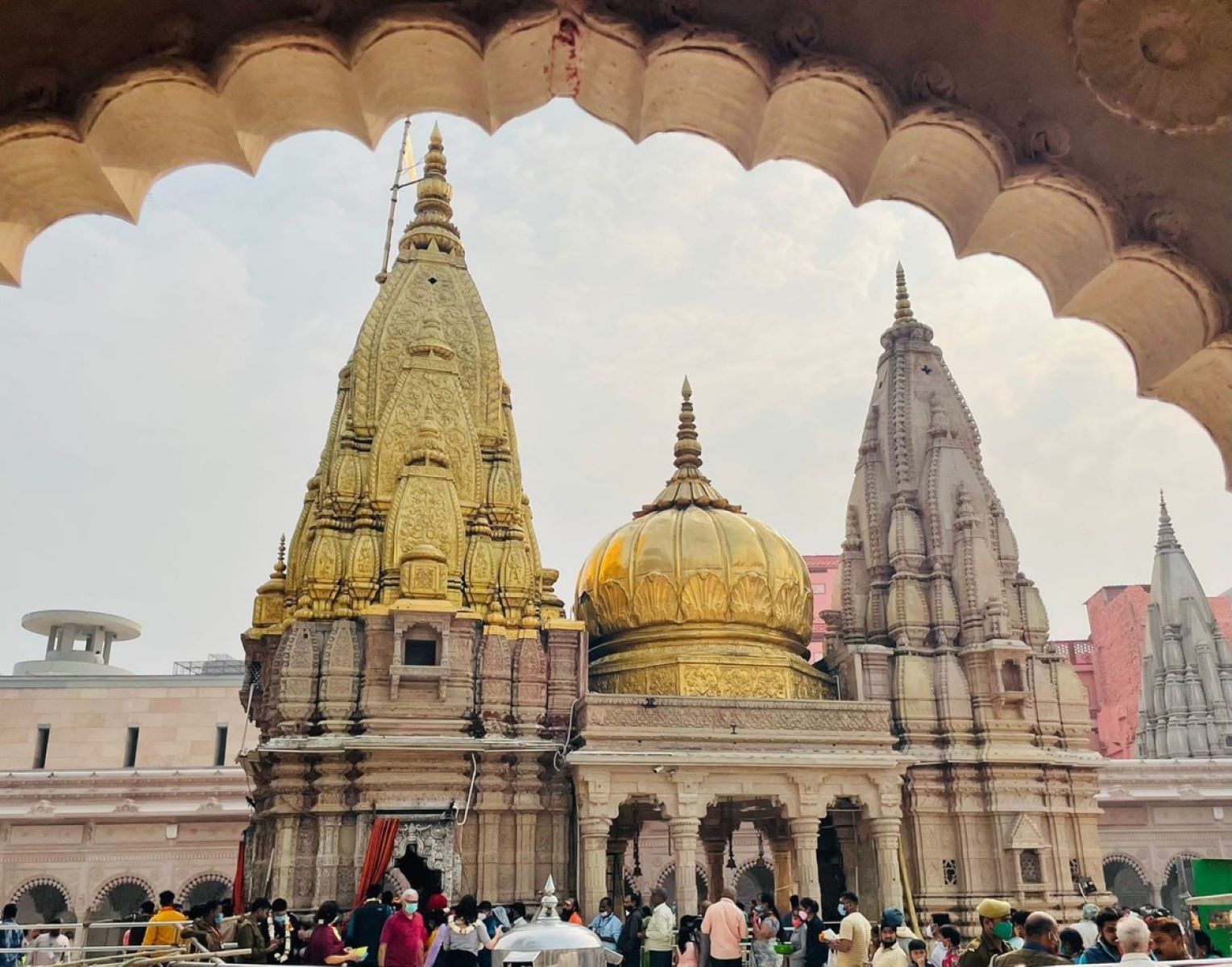Varanasi: The Eternal City of Light and Devotion
Nestled between the sacred confluences of the Ganga with Varuna and Asi, Varanasi, also known as Kashi or Benares, is a spiritual haven that has attracted seekers and pilgrims for millennia. Spanning a distance of about 2.5 miles between these holy rivers, the city offers a divine journey, the Pancha-kroshi Yatra, culminating at the Sakshi Vinayak Temple, enveloping one in its mystical aura.
Revered in ancient texts as the land between the holy Varuna and Asi rivers, Varanasi is heralded as the supreme spiritual ground, unmatched anywhere on Earth. The city’s luminous legacy, dating back to the Rig Veda, shines as Kashi, “the luminous one,” a beacon of enlightenment and wisdom.
The Asi Ghat, steeped in legend, marks the site where Goddess Durga’s celestial sword fell, creating the Asi river, further enriching Varanasi’s tapestry of myth and history. Despite the modern-day challenges faced by the Varuna river, the city’s spiritual vibrance remains undimmed, reflecting the eternal light of Kashi, a city built by the divine consort of Shiva and Parvati.
Varanasi, a microcosm of India’s profound cultural and religious heritage, stands as a testament to the eternal harmony of the soul with the cosmos. It is a city where the Ganges graciously reverses its course, symbolizing the auspiciousness embedded in the very essence of Varanasi. The city’s eighty-one ghats and sacred tanks continue to be the sites of spiritual liberation for countless souls.
The Enchanting Tale of King Divodasa and Lord Shiva’s Triumphant Return to Kashi
In the heart of the ancient city of Kashi, a saga unfolded that intertwined the destinies of gods and mortals, revealing the divine allure of this sacred land. Kashi, a jewel among cities, was the chosen winter abode of Lord Shiva, the ascetic god of destruction and renewal. Transitioning from the solitary heights of the Himalayas to the vibrant plains, Lord Shiva’s move to Kashi was a testament to his graceful compromise upon marrying a princess, thereby enriching the city with his divine presence.
A pivotal chapter in Kashi’s lore began when Lord Shiva, for reasons of his own, departed, leaving the city’s spiritual essence vulnerable. The pantheon, fearing the loss of Kashi’s sanctity, sought the wisdom of Lord Brahma, the cosmic creator. In his quest for a guardian worthy of Kashi, Lord Brahma’s gaze fell upon Ripunjay, a sage of royal lineage, engrossed in profound meditation in the wilderness near Banaras. Chosen by divine decree, Ripunjay was to ascend the throne as King Divodasa, under the condition that his reign would be free from divine interventions, ensuring his efforts to uphold dharma remained undisturbed.
King Divodasa’s rule heralded an era of unparalleled justice, prosperity, and spiritual awakening. Yet, the tale took a celestial turn when Lord Shiva yearned to return to his beloved city, now flourishing under Divodasa’s stewardship. A divine dilemma ensued, as no god could tread upon the blessed lands of Kashi due to Brahma’s boon to Divodasa. Determined to reclaim his seat, Lord Shiva embarked on a celestial strategy, dispatching messengers, yoginis, and deities, only to witness each become enchanted by Kashi’s perfection, choosing to remain rather than fulfilling their missions.
In an extraordinary twist of fate, it was Lord Vishnu, the preserver, who orchestrated the final act of this divine drama. With a cunning plan, he introduced Ganesh, disguised as an astrologer, into the heart of Kashi. Through a series of celestial interventions, King Divodasa was gently nudged towards a realization that would ultimately pave the way for Lord Shiva’s return. Acknowledging his oversight, Divodasa crafted a Shiv Linga, invoking Lord Shiva’s presence in Anandavan, thus marking the king’s transcendence to Shiva’s abode and heralding Lord Shiva’s triumphant return to Kashi.
As Lord Shiva resumed his eternal vigil over Kashi, the city blossomed into a spiritual nexus, hosting an array of temples and deities, embodying the essence of India’s sacred geography. Kashi emerged not just as a terrestrial city but as a celestial realm, where the cycle of birth and rebirth could be transcended. Pilgrims and seekers from across the lands are drawn to its ghats, temples, and sacred waters, in pursuit of salvation and spiritual liberation.
Thus, the legend of King Divodasa and Lord Shiva’s return encapsulates the eternal charm of Kashi, a city where the divine and the earthly realm converge, offering solace, enlightenment, and the promise of moksha to all who embrace its sacred soil.


0 Comment